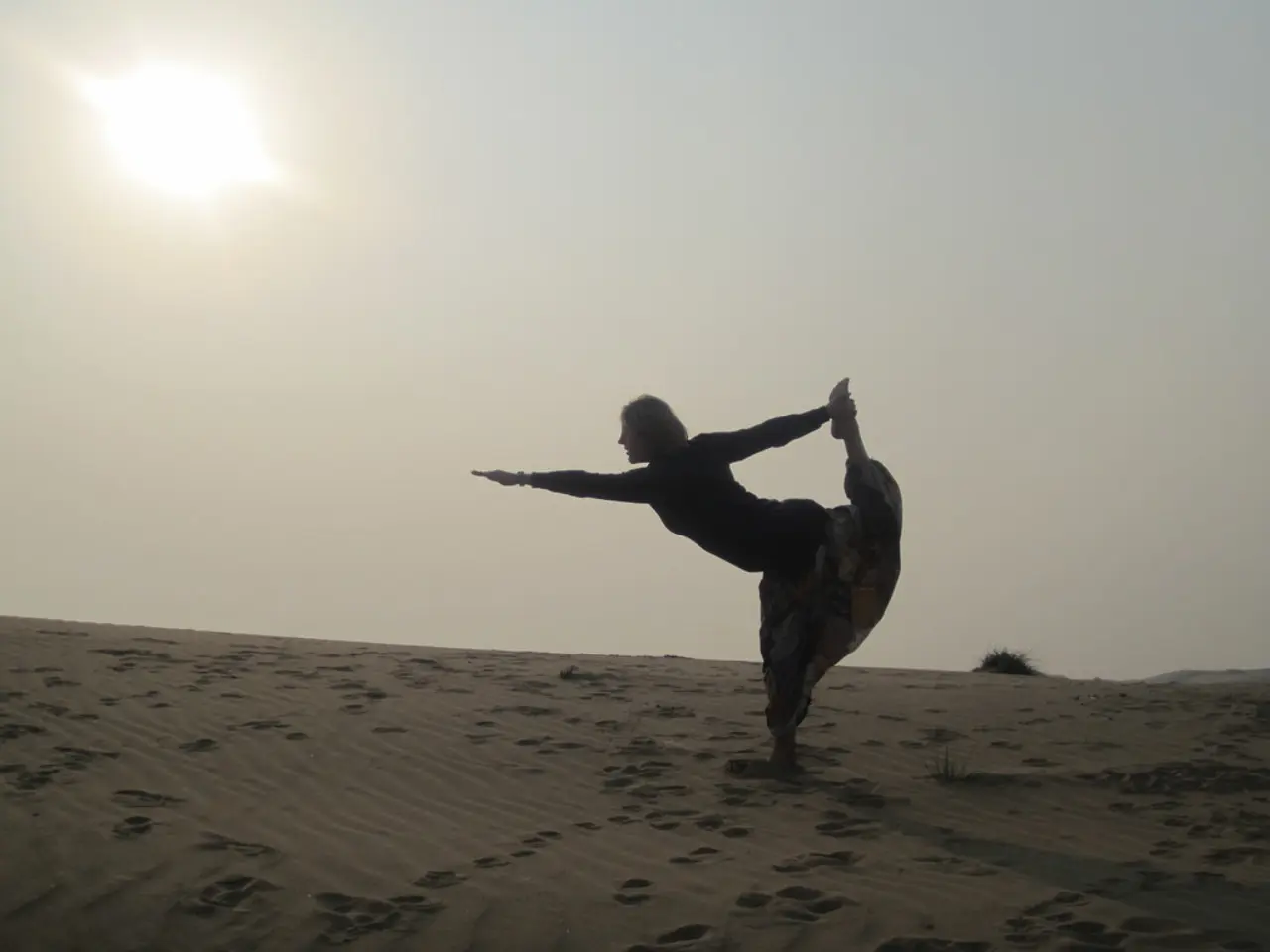Record-breaking heatwave in UAE leads to health warnings; heat exhaustion, fainting, sunburns, and heat strokes may occur due to extreme temperatures reaching 51.8°C.
UAE Faces Record-Breaking Heatwave: Staying Safe During the Al Mirzam Period
As the UAE experiences its most extreme phase of hot weather during summer, temperatures have soared to record highs, reaching 51.8°C in Sweihan, Al Ain on August 1, 2023 [1][2]. This peak summer heat, known as the Al Mirzam period, lasts approximately from July 29 to August 10 and is characterized by intense desert winds known as samum [3].
To combat the risks associated with these extreme temperatures, healthcare and climate experts are urging precautions such as staying well-hydrated, avoiding direct sunlight or outdoor heat during peak hours, and maintaining awareness of heat-related health risks [1][3]. Vulnerable groups, including children, the elderly, and outdoor workers, require particular care due to their reduced ability to regulate body temperature [1].
The potential health risks associated with these temperatures include dehydration, heat exhaustion, heat stroke, fainting, sunburn, and aggravation of chronic conditions like heart and kidney diseases [1][3]. Even healthy individuals are at risk of severe exhaustion and rapid dehydration under these conditions [1]. Emergency rooms have reported an increase in heat-related cases during this heatwave period [1].
To help maintain physical health during periods of high heat without exposing individuals to sunstroke risks, many fitness enthusiasts are being spotted jogging at malls in Dubai. Initiatives like the Mallathon, launched this week across various malls, invite residents to jog or walk indoors from 7am to 10am for free [4].
Doctors recommend residents to drink at least three to four litres of fluids daily, including coconut water, oral rehydration solutions, and fruits rich in water like watermelon and oranges [5]. However, improper hydration or overconsumption of plain water without electrolytes can worsen symptoms in older adults, sometimes leading to low sodium levels and confusion [5].
Dr Baiju Faizal, a consultant of internal medicine at Lifecare Hospital in Musaffah, advised residents to avoid direct sun exposure due to the risk of fainting, heatstroke, and complications like electrolyte imbalance [5]. Dr Mohammad Fityan, a climate health expert at Burjeel Holdings' Centre for Climate and Health, has reported a noticeable rise in heat-related emergency room visits in recent days [1].
As the Al Mirzam period continues through August 10, experts stress the importance of awareness, hydration, and limited exposure to direct heat for staying safe [3]. News articles related to the current situation include "UAE temperatures hit 51.8°C as peak summer heat intensifies", "UAE heatwave: Temperatures soar over 51oC; how to avoid sunstroke, summer illnesses", and "UAE residents shift funeral timings to avoid summer heat, protect mourners' health" [6].
Sources: 1. Al Jazeera 2. Gulf News 3. Khaleej Times 4. Dubai Mall 5. Gulf News 6. Khaleej Times
- During the Al Mirzam period, prevalent in UAE from July 29 to August 10, intense desert winds and record-breaking heat have been recorded, necessitating caution and health-and-wellness precautions.
- Climate-change experts have emphasized the need for extra precautions for vulnerable groups such as children, the elderly, and outdoor workers due to their reduced ability to regulate body temperature during the heatwave.
- To combat dehydration, heat exhaustion, heat stroke, and other health risks associated with the extreme weather, healthcare professionals urge residents to stay well-hydrated, avoid direct sunlight, and limit outdoor activities during peak hours.
- Fitness-and-exercise enthusiasts have taken to jogging indoors in malls while the Al Mirzam period persists to minimize the risks of sunstroke.
- Doctors recommend drinking at least three to four liters of fluids daily, with a focus on coconut water, oral rehydration solutions, and water-rich fruits like watermelon and oranges for proper hydration.
- Improper hydration can lead to complications in older adults, such as low sodium levels and confusion.
- Awareness of heat-related health risks, coupled with appropriate drinking and sun avoidance measures, is crucial for maintaining physical health during the intense weather.
- CBD, derived from environmental-science research, has gained popularity as a potential treatment in managing anxiety and stress related to climate change and the current heatwave.







